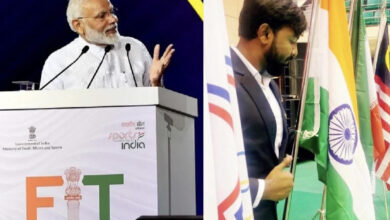Triple Talaq: India Muslim Women in limboo after instant divorce ruling well described by Advocate Mohammed Uzeb Shaikh
SMT. RAJDA KHATOON MOHAMMED PARVEZ SHAIKH STORY
Rajda Khatoon got married to Mohammed Parvez Shaikh at Mumbai, Maharashtra and for start the new business and for new house husband Mohammed Parvez Shaikh taken money from here newlywed wife. After the month her husband and in-laws they refuse to accept her as a bride and they threw her out of the Mumbai house after beating her up and instantly divorce her by uttering “talaq” thrice. She approached the police the same day, only to be turned away without an FIR. With the help of social workers she sent a complaint letter to the Mumbai Police Commissioner, Minority Commission and Maharashtra State Commission for Women for the help but all in vain. The RajdaKhatoon contacted to advocate Mohammed Uzeb Shaikh and keep the facts of consequence she face from the husband and in-laws. A advocate Mohammed Uzeb Shaikh immediate intervene in the matter and issued notice against husband and in-laws and keep the matter before Dharavi police station and with continues efforts registered FIR (FIR No. 0970/2023) with under various section of Muslim Women (Protection of Rights on Marriage) Act, 2019, Dowry Prohibition Act and IPC whereas still husband is deliberately absconding in order to avoid arrest/prosecution in the criminal case.
The Muslim Women (Protection of Rights on Marriage) Act 2019, which the Parliament passed in July 2019, makes the practice of instant divorce through the ‘triple talaq’ among Muslims a punishable offence. The Bill followed a 2017 Supreme Court ruling that the practice of instant Triple Talaq was unconstitutional and a divorce pronounced by uttering ‘talaq’ three times in one sitting is void and illegal. Testimonies of the victims reveal that the emotional, psychological and physical torture of Muslim women at the hands of abusive husbands has increased since they are either forced to live in the same house with a perceptive religious obligation to serve their husbands or leave the house without a clear marital status. The dominant perception that enactment of the Muslim Women (Protection of Rights on Marriage) Act, 2019, popularly known as the triple talaq law (TTL), will pave the way for the real emancipation of Muslim women goes against the actual afterlife of this law. The triple talaq law (TTL) has not merely failed to achieve its stated objective, it has also added a new dimension to the patriarchal structures among Muslims in India. The Constitution allows most religions to regulate matters such as marriage, divorce and inheritance through their own civil code. But the tradition of triple talaq among the country’s 170 million Muslims is one of the most controversial, because it allows a man to divorce his wife by merely uttering the word “talaq”, or divorce, three times.

A advocate and a social activist Mohammed Uzeb Shaikh, told us the complexities surrounding this issue. According to him, the triple talaq law (TTL) gave some hope to the victims of triple talaq. There was a tremendous increase in the number of women approaching her after the enactment of this law. These were the women who had been the victims of domestic violence and were facing the threat of triple talaq. Despite his active involvement, there were only a few FIRs that got registered.
According to advocate Mohammed Uzeb Shaikh, the police do not register a case against the husband in usual circumstances and insist on producing a witness. In other words, the police put an additional burden on the victim (woman) to produce a witness as well as proof to substantiate her complaint. It is found that the instances of triple talaq usually happen at a time when the couple is involved in a heated debate or is in the throes of anger. In such circumstances, other people, especially the neighbours, do not get involved. After the enactment of the triple talaq law (TTL), it has become more complicated. No one would like to go to the police station in favour of the victim. Hence, practically it is almost impossible for the victim to produce a witness.
Advocate Mohammed Uzeb Shaikh mentioned a number of incidents where she tried registering a case on behalf of the victim under triple talaq law (TTL) with no success. According to her, the best possible option for people like her is to take refuge in the existing legal framework — the DVA and/or 498 (a) of the CrPC — to get the cases of triple talaq formally registered.





